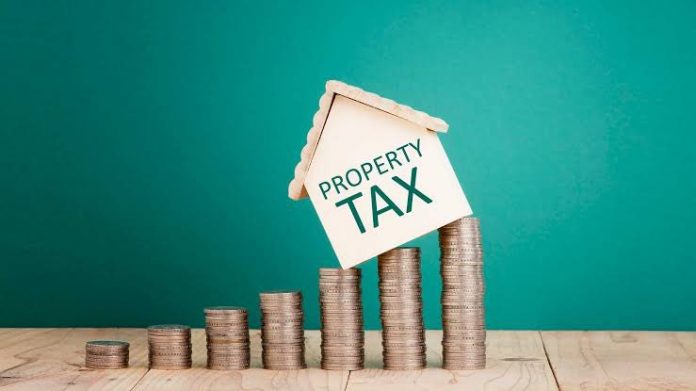The Jammu and Kashmir administration ordered on Tuesday the imposition of property tax in municipal areas of the Union Territory from April 1.
Afnan Habib | TwoCircles.net
SRINAGAR (JAMMU and KASHMIR) — A property tax will be levied in the Union Territory of Jammu and Kashmir starting in April, according to a statement by the Jammu and Kashmir administration. The government announced the tax on residential and commercial properties under the jurisdiction of urban local bodies (municipal corporations and committees) throughout J&K.
“In exercise of the power conferred by section 71A of the Jammu and Kashmir Municipal Act, 2000, the government hereby notifies the rules for levy, assessment, and collection of property tax in the municipalities and municipal councils of the UT,” the order said.
All real estate is subject to property taxes, which apply to residential homes, commercial structures, and office buildings. According to the government, the tax is imposed in J&K to provide urban local bodies with more funding, who have struggled to deliver all of their services.
Political leaders, however, criticised the government’s order to impose property tax and demanded its immediate withdrawal.
“Imposition of tax smacks of arbitrariness. People of J&K have been suffering economically since August 5, 2019,” National Conference state spokesperson Imran Nabi Dar said.
Former chief minister and National Conference vice-president Omar Abdullah stated in a tweet that “Why should people in J&K pay state taxes, including the proposed property tax when we have no say in how our government is run and no say in the decision-making of J&K? We are expected to be mute spectators to all unjust decisions by Raj Bhavan.”
Sajjad Lone, the head of the Peoples Conference, also criticized the move. “Property tax in the aftermath of years lost in Covid seems determined to turn every stone that can be turned to ensure economic euthanasia. Governments have pumped billions worldwide to bump start ailing economies,” he said.
The administration, on the other hand, claims that the property tax policy would assist municipal bodies in generating funds and enabling them to offer better services with minimal tax ramifications for the general public.
While criticising the move, the Mayor of Srinagar, Junaid Azim Mattu, stated in a tweet that the imposition of property taxes in J&K violates the concept of municipal empowerment. “While Srinagar Municipal Corporation will explore ways to contest this arbitrary move, I am writing to the Hon’ble LG seeking a withdrawal of the SO,” Mattu remarked.
Imposition of Property Tax in J&K is ironically violative of municipal empowerment as this has neither been deliberated upon, nor approved by elected ULBs.
While SMC will explore ways to contest this arbitrary move, I am writing to the Hon’ble LG seeking a withdrawal of the SO.
— Junaid Azim Mattu (@Junaid_Mattu) February 21, 2023
Deputy mayor Parvaiz Ahmad Qadri Saif tweeted and asked people not to panic. “We are rejecting it even before its arrival. It won’t get the consent of corporators. People should not panic.”
The people need to understand that imposition of property Tax is only SO of Govt & before implementation that has to be first passed by SMC; We are rejecting proposal even at its arrival & it won’t get consent of corporators to get it passed by SMC. People should not get panicked pic.twitter.com/aA1iobWoid
— Parvaiz Ahmad Qadri (@Parvaiz_Qadri) February 21, 2023
Tax details
The notice released under the Jammu and Kashmir Property Tax (Other Municipalities) Rules, 2023, states that the property tax will subsequently be applied as 5% of the taxable annual value (TAV) on residential property and 6% of the TAV on commercial property.
A formula that considers the municipality type, land value, area, usage, construction, age, slab, and occupancy status will be used to determine a property’s TAV and the tax owed on it.
The location of the property (city or town), its occupancy status, its nature (residential, commercial, or land), its construction type (single-story, multi-story, pukka or kuchha building), the carpeted square area, and the year of construction will all be taken into account before a tax is imposed.
The details of the property and the tax owed in Form-1 must be provided to the executive officer or any other authorized person by May 30 of the financial year to which the return relates.
When paying in two instalments, a copy of the acknowledgement and documentation of the second instalment’s payment must be provided by November 30.
For the first block of three years, beginning on April 1, 2023, the property tax will be in effect until March 31, 2026. According to the notification, any new buildings constructed during the time will be taxed according to the block’s start day, and if built in the middle of the year, they will be charged proportionately to the number of months in the year.
Exemptions
The following are exempt from taxation: municipal properties, all places of worship, cremation and burial grounds, and unoccupied land not linked to a building or structure.
Both the J&K government and the Indian government’s properties would be excluded. But for such properties, a service fee equal to 3% of the TAV will be due.
Afnan Habib is a freelance journalist based in Srinagar, Jammu and Kashmir. He tweets @afnanhabib


